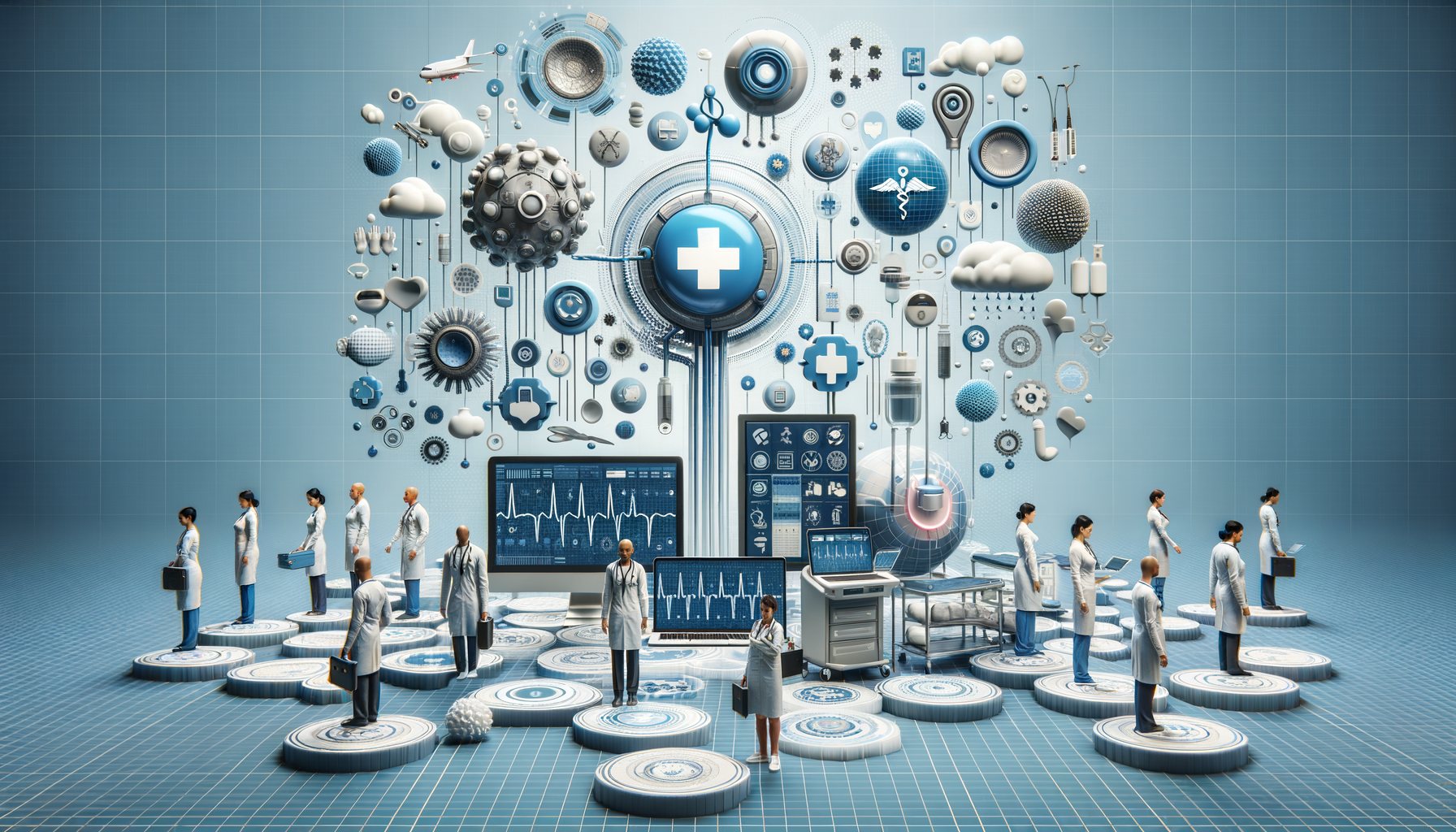Introduction to Healthcare Software
In the rapidly evolving world of healthcare, the integration of technology has become indispensable. Healthcare software solutions are transforming the way medical services are delivered, enhancing patient care, and streamlining operations. As the demand for efficient healthcare services grows, the role of software in this sector becomes increasingly critical. This article delves into the various aspects of healthcare software, exploring its benefits, types, and the future of these technologies in the medical field.
Benefits of Healthcare Software
Healthcare software provides a multitude of benefits that significantly improve the efficiency and effectiveness of healthcare delivery. One of the primary advantages is the enhancement of patient care. By utilizing electronic health records (EHRs), healthcare providers can access comprehensive patient information, enabling more accurate diagnoses and personalized treatment plans.
Moreover, healthcare software facilitates better communication among medical professionals. With integrated systems, doctors, nurses, and specialists can easily share patient data, reducing the risk of errors and ensuring cohesive treatment strategies. Additionally, software solutions help in managing administrative tasks, such as scheduling appointments, billing, and maintaining inventory, thus allowing medical staff to focus more on patient care.
Another significant benefit is the improvement in data security and compliance. Healthcare software systems are designed to protect sensitive patient information, ensuring compliance with regulations such as the Health Insurance Portability and Accountability Act (HIPAA). This not only safeguards patient privacy but also builds trust between healthcare providers and patients.
Types of Healthcare Software
The healthcare industry utilizes a variety of software solutions, each catering to specific needs. Some of the most common types include:
- Electronic Health Records (EHR): These systems store comprehensive patient information, including medical history, treatments, and test results, providing a centralized repository for healthcare providers.
- Practice Management Software: This software assists in the day-to-day operations of medical practices, handling tasks such as appointment scheduling, billing, and patient registration.
- Telemedicine Software: With the rise of remote healthcare, telemedicine software allows patients to consult with healthcare professionals via video calls, making healthcare more accessible.
- Medical Imaging Software: Used to process and analyze medical images, this software aids in accurate diagnosis and treatment planning.
Each of these software types plays a crucial role in enhancing the efficiency and effectiveness of healthcare services, catering to the diverse needs of medical professionals and patients alike.
Challenges in Implementing Healthcare Software
Despite the numerous advantages, implementing healthcare software comes with its own set of challenges. One of the primary obstacles is the high cost of software development and maintenance. Many healthcare facilities, particularly smaller ones, may find it financially challenging to adopt comprehensive software solutions.
Additionally, the integration of new software into existing systems can be complex and time-consuming. Healthcare providers need to ensure that the new software is compatible with their current infrastructure, which often requires significant technical expertise and resources.
Another challenge is the resistance to change among healthcare professionals. Adapting to new technologies requires training and a shift in traditional practices, which can be met with reluctance. Overcoming this resistance is essential for the successful implementation of healthcare software.
Finally, data security remains a critical concern. As healthcare software systems store sensitive patient information, they are prime targets for cyberattacks. Ensuring robust security measures and compliance with regulations is crucial to protect patient data and maintain trust.
The Future of Healthcare Software
The future of healthcare software is promising, with continuous advancements in technology paving the way for more sophisticated solutions. Artificial intelligence (AI) and machine learning are expected to play a significant role in the evolution of healthcare software, offering enhanced diagnostic capabilities and predictive analytics.
Furthermore, the integration of wearable technology and the Internet of Things (IoT) will enable real-time monitoring of patient health, providing valuable data for personalized treatment plans. This will not only improve patient outcomes but also reduce the burden on healthcare facilities by enabling preventive care.
As healthcare software continues to evolve, it is likely to become more user-friendly and accessible, making it easier for healthcare providers to adopt and integrate into their practices. The focus will be on creating holistic solutions that cater to the diverse needs of the medical community, ultimately enhancing the quality of care delivered to patients.
In conclusion, healthcare software is an essential component of modern medical practice, offering numerous benefits and opportunities for improvement. By addressing the challenges and embracing technological advancements, healthcare providers can leverage software solutions to deliver exceptional care and streamline their operations.



Leave a Reply